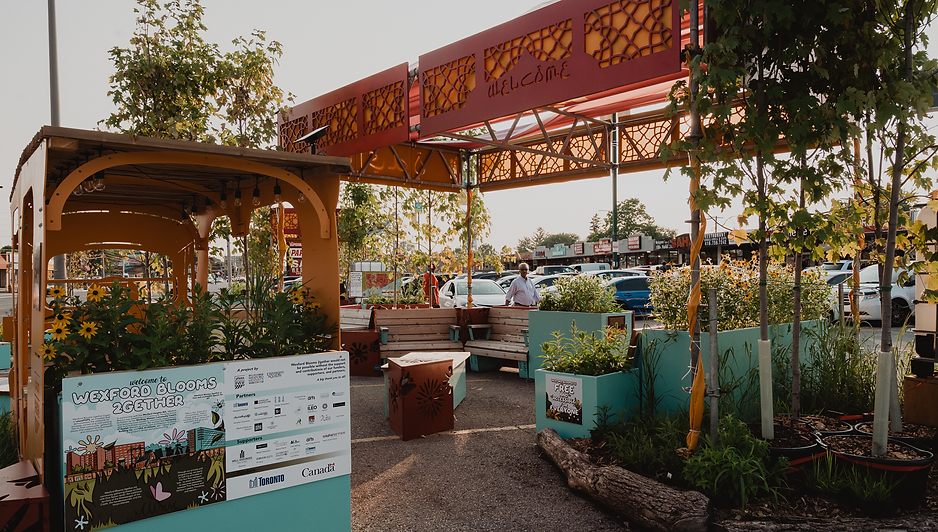Public Space
plazaPOPs x MiPs
Salam/welcome to an innovative gathering space that reimagines the concept of Islamic Gardens within the context of an inner-suburban parking setting. This unique collaboration between plazaPOPs and Muslims in Public Space—MiPs transforms underused urban areas into vibrant hubs of community and creativity. Here, we blend the serene beauty and intricate design of traditional Islamic gardens with the practicality of modern urban spaces, inviting everyone to engage, reflect, and connect in this newly re-envisioned public realm. Join us as we explore the fusion of art, culture, and community in a setting that celebrates the diversity and inclusivity of our city.






The Concept of Paradise in Islam
In Islam, the concept of paradise, or "Jannah," holds profound significance, symbolizing eternal peace, joy, and closeness to God. The Qu'ran vividly describes paradise as "gardens beneath which rivers flow," a metaphor that appears 36 times, emphasizing the lush, life-giving environment awaiting the righteous. This recurring imagery of gardens not only underscores the importance of water, greenery, and tranquility as divine rewards but also carries deep symbolic and cultural connotations.
Symbolic Significance of Gardens
Eternal Bliss: Gardens are universally recognized as emblems of natural beauty and tranquility. In the Qu'ran, they symbolize an everlasting state of happiness and peace, surpassing the challenges of daily life.
Spiritual Restoration: Gardens often provide a space for reflection and relaxation. In the Quranic context, they symbolize a place of spiritual restoration and renewal, where the faithful are rejuvenated by their proximity to divine presence.
Bounty and Sustenance: The references to flowing rivers and abundant vegetation in these gardens symbolize endless bounty and sustenance from God. This signifies a place where all needs are met and where there is no scarcity.


The 7 elements of Islamic Gardens
Islamic Gardens are thoughtfully designed to embody the Islamic vision of paradise, detailed in the Qu’ran. These gardens incorporate seven key elements: Quadripartite Layout, Water, Shade, Vegetation, Pavilions, Walls/Gates, and Reflecting Pools. Each element serves practical and symbolic purposes, reflecting their utility and deeper spiritual significance. The subsequent boards will delve into each element, exploring its relevance in the Qu'ran and illustrating it through specific examples. This exploration highlights both their aesthetic contributions and their profound meanings within Islamic culture.

